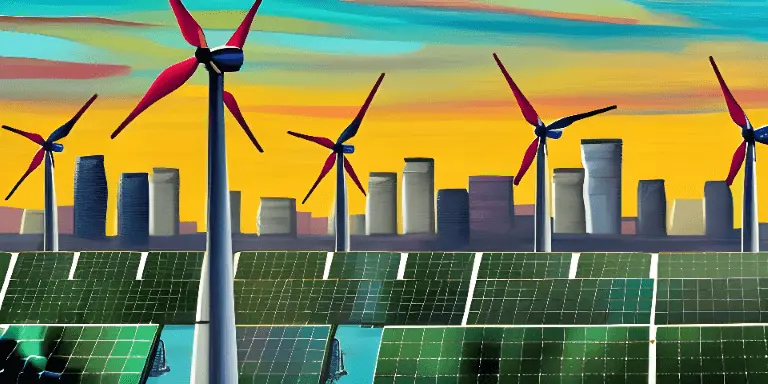The global energy landscape is undergoing a profound transformation as countries strive to transition to renewable and sustainable energy sources. While this shift towards green energy is crucial for combating climate change and reducing dependence on fossil fuels, it presents unique challenges for developing nations. Among these challenges, affordability stands out as a key concern. In this piece, we will explore the relationship between affordability and the green energy transition in the developing world and emphasize the importance of finding viable solutions that ensure both economic growth and environmental sustainability.
The affordability dilemma facing developing nations is a complex issue that demands attention. On one hand, these countries are grappling with poverty, limited financial resources, and a pressing need for economic development. On the other hand, they are also among the most vulnerable to the adverse effects of climate change, including extreme weather events, rising sea levels, and water scarcity. Balancing economic growth with environmental sustainability is a delicate task, and it requires innovative approaches that prioritize affordability.
Over the past decade, the cost of renewable energy technologies has plummeted, making them increasingly competitive with traditional fossil fuels. Solar and wind power, in particular, have witnessed remarkable advancements in efficiency and cost-effectiveness. These advancements have opened up new possibilities for developing nations, offering them a viable path to affordable and clean energy. However, upfront investment costs, technological capacity, and infrastructure limitations continue to pose significant barriers.
International cooperation, like the World Bank, Asian Development Bank, and IMF, plays a crucial role in addressing the affordability challenge of the green energy transition in the developing world. Wealthier nations, international organizations, and financial institutions must provide financial support, technical assistance, and capacity building to help developing countries adopt renewable energy solutions. Such collaboration can facilitate technology transfer, reduce costs through economies of scale, and provide access to capital for infrastructure development. By pooling resources and expertise, we can create a more equitable and sustainable energy future for all.
Balancing economic growth with environmental sustainability is a delicate task, and it requires innovative approaches that prioritize affordability.
While external support is essential, fostering domestic investment and entrepreneurship is equally important for driving the green energy transition. Governments of developing nations must create favorable investment climates, establish clear regulatory frameworks, and offer incentives to attract private sector participation. Encouraging domestic entrepreneurs and innovators to develop renewable energy technologies tailored to local needs can reduce costs and spur economic growth simultaneously.
In many developing countries, a significant portion of the population lacks access to reliable and affordable energy services, a condition known as energy poverty. The green energy transition provides an opportunity to address this pressing issue. Deploying decentralized renewable energy solutions, such as off-grid solar systems, can rapidly expand access to electricity in rural and remote areas. Not only does this alleviate poverty, but it also reduces reliance on fossil fuels and the associated environmental degradation.
Building local capacity and facilitating technology transfer are crucial components of achieving a sustainable green energy transition. Developing nations should invest in education, research, and training programs to develop a skilled workforce capable of deploying and maintaining renewable energy systems. International partnerships can facilitate knowledge sharing and technology transfer, allowing developing countries to leapfrog traditional energy sources and embrace clean energy solutions more rapidly.
Innovative financing mechanisms are vital for overcoming the affordability barrier. Multilateral development banks, impact investors, and green bonds can provide avenues for mobilizing capital for renewable energy projects. Additionally, microfinance and pay-as-you-go models can enable low-income individuals to access clean energy technologies affordably. By diversifying and democratizing financing options, the green energy transition becomes more inclusive and accessible to all segments of society.
The green energy transition in the developing world presents a unique challenge: ensuring affordability while addressing pressing economic challenges like poverty reduction is at the heart of the challenge. However, if the developing world’s energy transition challenges are not addressed, then the fight against climate change will remain elusive.









